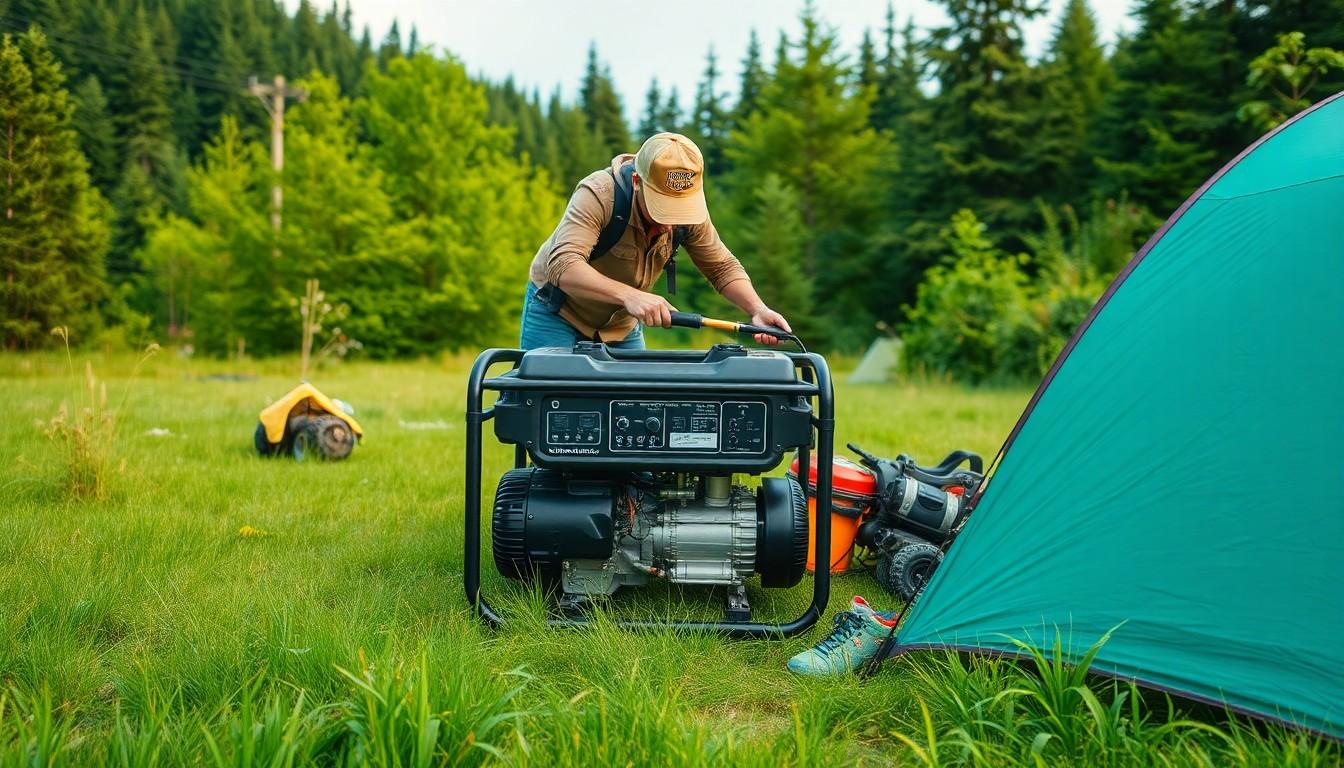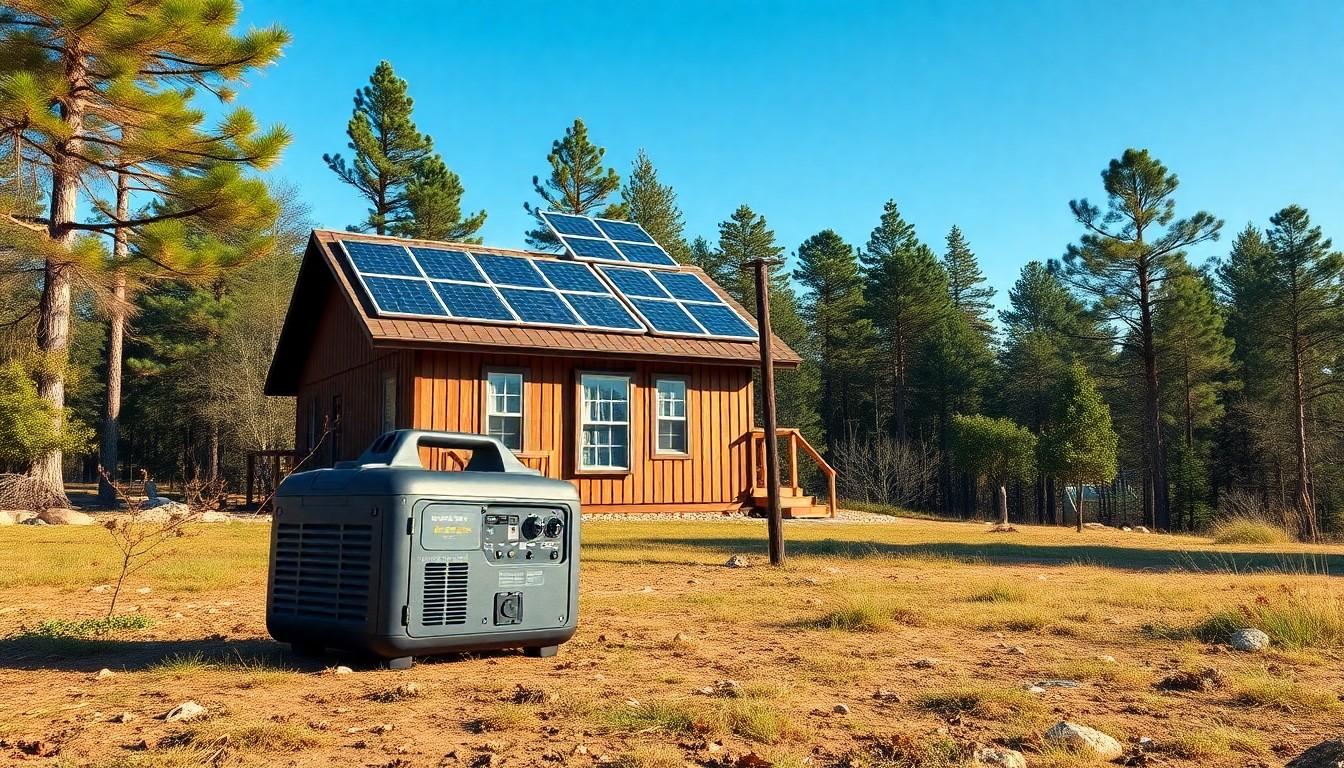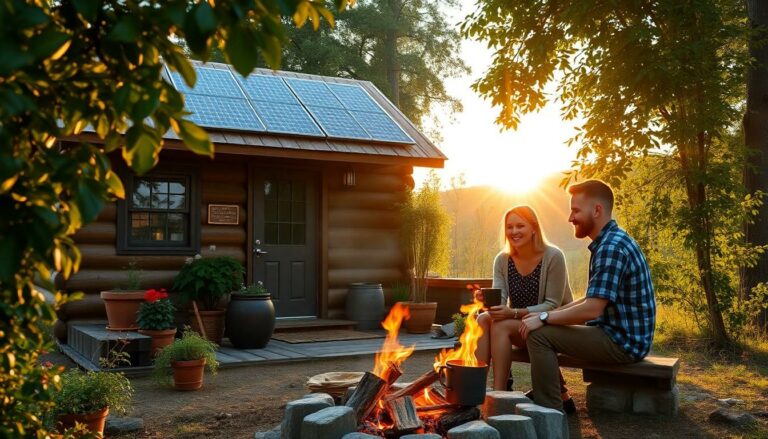Imagine waking up to the sound of chirping birds and the gentle rustle of leaves, only to realize your morning coffee depends on a generator. Off-grid living can be a dreamy escape from the hustle and bustle, but it comes with its own set of challenges, especially when it comes to power. A reliable generator isn’t just a luxury; it’s the lifeblood of your remote oasis.
Generator for Off Grid Living
Off-grid living offers a unique lifestyle, combining independence with a deep connection to nature. Most individuals who choose this path seek to minimize their dependence on public utilities. Living in remote areas presents not only benefits but also distinct challenges, particularly regarding energy sources.
Daily routines often adapt to the availability of resources. Morning coffee becomes a ritual, contingent on reliable power. Generators frequently serve as essential tools for supplying electricity, ensuring that necessary appliances function smoothly. Many off-grid homes utilize renewable energy sources, including solar panels and wind turbines, but generators provide a backup when sun or wind falls short.
Water sources also play a crucial role in this lifestyle. Rainwater collection systems or wells often replace municipal supply, underscoring the importance of resourcefulness. Individuals living off-grid develop skills for sustainability, such as gardening or preserving food, ensuring self-sufficiency. Daily tasks require planning, emphasizing the need for efficient energy management.
Community connections take on new meanings. Many off-grid dwellers find camaraderie with those who share similar values regarding sustainability. Social gatherings often revolve around sharing resources or techniques for enhancing self-reliance. Embracing this lifestyle fosters a sense of achievement and fulfillment.
Off-grid living encourages a mindful approach to consumption. Individuals tend to prioritize what truly matters, leading to thoughtful decision-making. Adapting to the rhythms of nature enhances appreciation for the environment and promotes stewardship. Generators, while critical for modern conveniences, symbolize the balance between technology and nature, enhancing life without overshadowing it.
Importance Of Generators For Off Grid Living

Generators play a crucial role in off-grid living. They provide the necessary power for daily activities, making life more convenient.
Power Needs Assessment
Assessing power needs is the first step for off-grid dwellers. Identifying essential appliances like refrigerators, water pumps, and lights helps in determining wattage requirements. Calculating total wattage ensures selection of an appropriate generator size. Energy-efficient appliances lower total consumption, which reduces costs and environmental impact. Understanding peak versus running watts aids in making informed decisions about generator capacity.
Types Of Generators
Multiple types of generators cater to off-grid living. Portable generators offer flexibility for various locations. Inverter generators provide clean energy, making them ideal for sensitive electronics. Standby generators deliver reliable power during extended outages. Solar generators combine renewable energy with portability, offering eco-friendly options. Each type serves distinct needs, allowing individuals to choose based on their specific lifestyle and energy requirements.
Features To Consider In A Generator
When choosing a generator for off-grid living, several important features come into play. Each feature contributes to the generator’s effectiveness and reliability.
Fuel Type
Fuel type impacts the generator’s operation and efficiency. Propane generators offer long shelf life, while gasoline models provide accessible fuel. Diesel generators are known for their durability. Solar generators, though sometimes limited in output, produce energy without emissions. Consider availability and convenience when selecting a fuel source.
Power Output
Power output determines the generator’s ability to run essential appliances. Evaluating wattage requirements involves listing devices like refrigerators, water pumps, and lights. Generators come in varying outputs, often measured in watts, including starting and running watts. Selecting a model with sufficient capacity ensures it meets daily energy needs while allowing room for additional appliances in the future.
Portability
Portability affects ease of use and placement. Some generators feature wheels and lightweight designs, allowing for easy transport. Others are built for stationary use, providing robust power but lacking mobility. Assessing the generator’s weight and transport features helps determine the best fit for off-grid living scenarios.
Noise Level
Noise level influences comfort and harmony with the natural environment. Many off-grid dwellers prioritize quieter generators for minimal disruption. Inverter generators typically produce less noise compared to traditional models. Checking decibel ratings before purchase helps ensure that the generator aligns with lifestyle preferences.
Top Generators For Off Grid Living
Off-grid living relies heavily on generators for consistent power supply. Several generator types cater to the diverse needs of individuals seeking energy solutions.
Portable Generators
Portable generators offer flexibility and convenience for off-grid dwellers. They typically run on gasoline or propane, providing a reliable energy source for various appliances. Many units operate between 1,000 and 10,000 watts, accommodating essential items like refrigerators or power tools. Their lightweight design enables users to easily transport them to different locations. Noise levels also vary, with quieter models reducing disruption in natural surroundings. This versatility makes portable generators ideal for campers and those needing temporary power in remote areas.
Standby Generators
Standby generators provide a permanent energy solution for off-grid homes. These systems connect directly to a home’s electrical system and automatically activate during outages, ensuring a seamless power supply. Often fueled by natural gas or propane, they deliver higher wattage compared to portable versions. Capacity typically ranges from 5,000 to 20,000 watts, meeting the demands of multiple appliances simultaneously. Installation requires professional assistance, ensuring safety and efficiency. Such generators suit homeowners prioritizing uninterrupted power for daily activities.
Solar Generators
Solar generators present an eco-friendly option for sustainable living. By harnessing solar energy, these devices eliminate fuel dependency and reduce carbon footprints. They vary in capacity, with options ranging from 300 to 3,000 watts to power small devices or entire homes, depending on needs. Most models include built-in batteries to store excess energy for nighttime use. Their silent operation aligns well with the tranquility of rural living. Solar generators empower off-grid enthusiasts to responsibly utilize available resources while minimizing environmental impact.
Independence and Connection to Nature
Choosing the right generator is vital for anyone embracing off-grid living. It not only supports daily routines but also enhances the overall experience of independence and connection to nature. By carefully assessing power needs and considering various generator types, individuals can find solutions that align with their lifestyle.
Whether opting for a portable generator for flexibility or a solar generator for sustainability, the right choice empowers off-grid dwellers to maintain comfort while minimizing their environmental impact. Embracing this lifestyle fosters resourcefulness and a deeper appreciation for the natural world, making it a rewarding journey for those who seek it.




